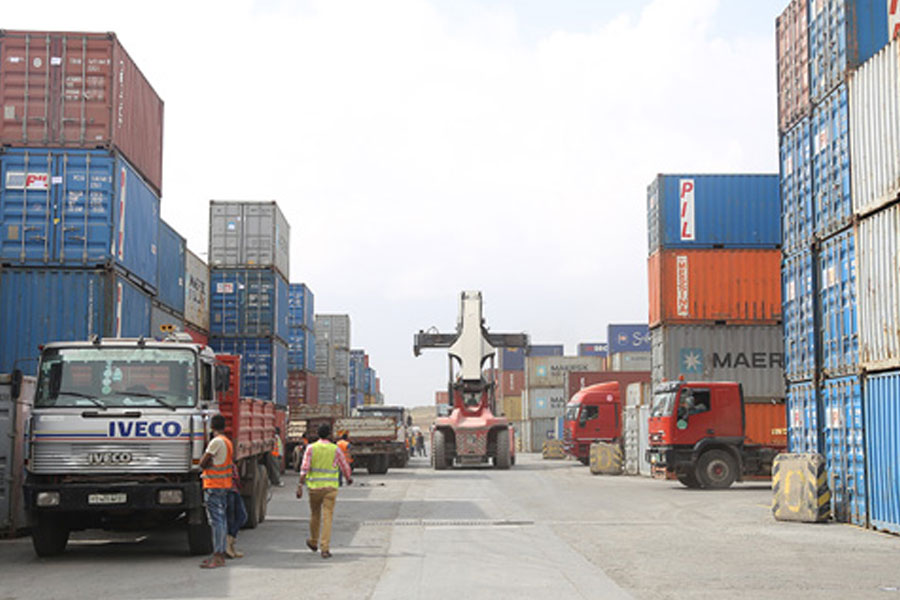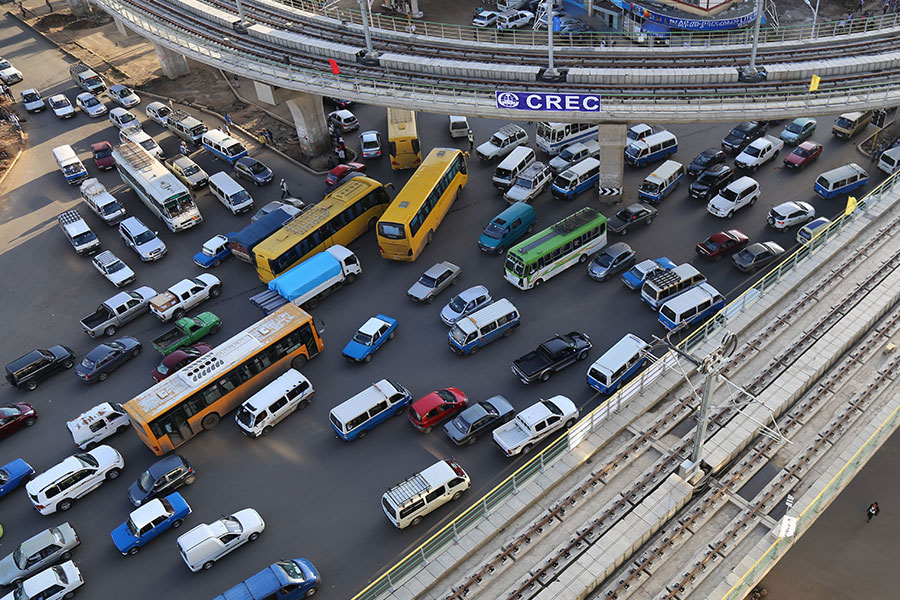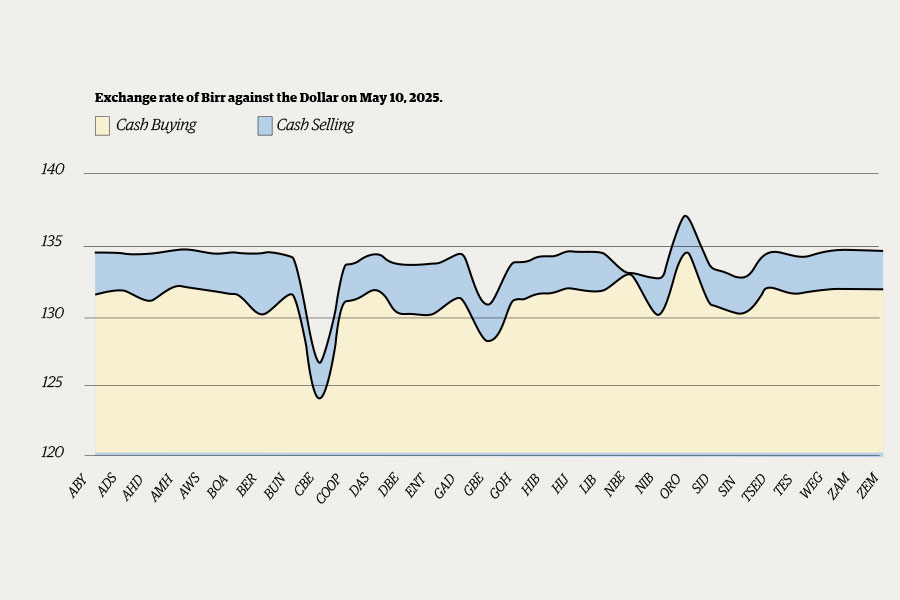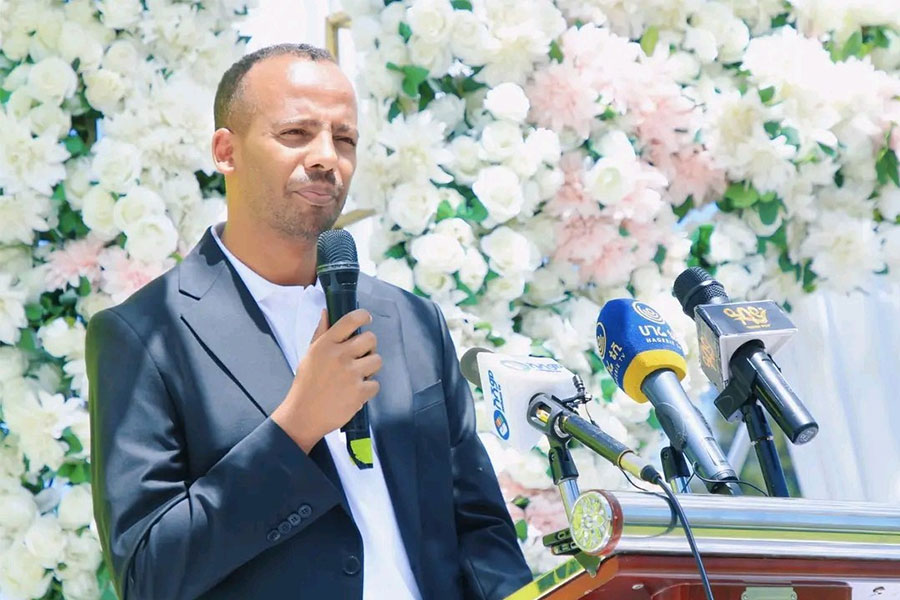
Executives and the board of directors at Commercial Bank of Ethiopia (CBE) are negotiating with McKinsey & Company, an American management consulting firm, to design strategies and draw up an action plan. If awarded, McKinsey will also review the quality of loans the Bank advanced, which carries a large aggregate of unserviced private and public sector loans.
McKinsey reached the final stage after offering a little over 1.7 million dollars, a quarter of the value of the second-lowest bidder, PricewaterhouseCoopers East Africa (PwC). McKinsey, which the Bank notified for its lowest bid, has yet to sign the contract as negotiations over the period the company's experts will stay in the country are still ongoing, according to sources close to the case.
McKinsey will undertake a comprehensive assessment of the Bank and diagnose the core sources or causes of CBE's weaknesses. It is also expected to come up with remedies, design strategies, and monitoring and evaluation tools, as well as drawing up a clear plan of action for implementation.
The eight-decade-old and largest publicly-owned bank has been in reform mode over the past year in order to get out of the hot water it has been in. The Bank has been struggling with a liquidity crunch and bad loans due to state-owned enterprises' accumulated debts. CBE is the primary domestic financing source, owning a 53pc share of the 945 billion Br in outstanding domestic debts registered to them since 2017.
Its lending went to the construction of the Grand Ethiopian Renaissance Dam (GERD), condominium housing projects, the 10 sugar factories, Yayu Multi-Complex Industries, and building the railways, among other state-run projects. Most of the loans carried by these enterprises are considered residual debts. After the new President Abei Sano's arrival last year, the board and executives of the Bank have been working on restructuring the bad loan portfolio.
Recently, the government formed a new Corporation that will absorb 570 billion Br of the state-owned enterprises' residual debts, over half of which was taken from Commercial Bank. The state-owned enterprises pledged to service the remaining debt based on negotiations with the Bank.
The Bank stepped into reviewing its loan quality and floated a tender to hire a company for the service. The bid was announced in September. Four global management and audit firms took part in the bidding process, which is overseen by the president of the Bank himself, and board directors including Eyob Tesfaye (PhD) and Mamo Mihretu, unlike other bidding processes. But only three of them, McKinsey & Company, PwC and KPMG, were technically evaluated.
PwC and McKinsey's financial offers, which were able to make the technical evaluation, were opened at the end of January. During the financial opening, McKinsey & Company came in as the lowest bidder, offering a significantly lower offer than that of PwC. Executives from PwC did not respond to an inquiry from Fortuneregarding the company's offer.
Evaluating the overall quality of the loan portfolio, including the assessment of individual loans such as repayment risks, compliance with lending procedures and policies, and the rescheduling of activities, will be undertaken by McKinsey.
McKinsey will design a corporate and functional strategy, conduct an asset quality review and present turnaround solutions for distressed loans, corporate governance, risk management and auditing. The project will cover quality management and control, domestic and international banking operations, human resource and institutional capacity, digital banking, marketing and product development.
McKinsey has previously conducted a study and designed a work plan for 13 large-scale irrigation projects selected by the National Irrigation Task Force, which Prime Minister Abiy Ahmed (PhD) chairs. It has also completed a study for the Industrial Parks Development Corporation (IPDC) to develop low-cost housing investment opportunities around Hawassa Industrial Park.
Bobby Demissie, McKinsey’s partner in Addis Abeba, did not respond to the inquiry from Fortunebefore the paper went to print.
Commercial Bank of Ethiopia has gone off the rails, and it is confused with its mission, according to Alemayehu Geda (Prof.), a prominent macroeconomist.
"It acts both as a commercial and as a development bank," he said. "It should redefine its role."
Alemayehu says that the Bank has a huge amount of bad debt as it was exposed to political corruption during the previous presidents' tenures. It has been lending to state-run enterprises and individuals with infeasible project proposals, according to him.
"This was leading the Bank to a system failure," he said. "I believe an independent and professional board of directors and management can solve the crises at the Bank."
Abei Sano, president of the Bank, declined to comment on the issue, stating that the bidding process is still pending.
PUBLISHED ON
Feb 13,2021 [ VOL
21 , NO
1085]

Fortune News | Dec 04,2021

Editorial | Jun 20,2020

Fortune News | Feb 06,2021

Fortune News | Nov 12,2022

Radar | Sep 29,2024

Money Market Watch | May 24,2025

Radar | Apr 27,2025

My Opinion | Nov 12,2022

Radar | Mar 05,2022

Radar | Jan 11,2020

Dec 22 , 2024 . By TIZITA SHEWAFERAW
Charged with transforming colossal state-owned enterprises into modern and competitiv...

Aug 18 , 2024 . By AKSAH ITALO
Although predictable Yonas Zerihun's job in the ride-hailing service is not immune to...

Jul 28 , 2024 . By TIZITA SHEWAFERAW
Unhabitual, perhaps too many, Samuel Gebreyohannes, 38, used to occasionally enjoy a couple of beers at breakfast. However, he recently swit...

Jul 13 , 2024 . By AKSAH ITALO
Investors who rely on tractors, trucks, and field vehicles for commuting, transporting commodities, and f...

Jun 28 , 2025
Meseret Damtie, the assertive auditor general, has never been shy about naming names...

Jun 21 , 2025
A well-worn adage says, “Budget is not destiny, but it is direction.” Examining t...

Jun 14 , 2025
Yet again, the Horn of Africa is bracing for trouble. A region already frayed by wars...

Jun 7 , 2025
Few promises shine brighter in Addis Abeba than the pledge of a roof for every family...